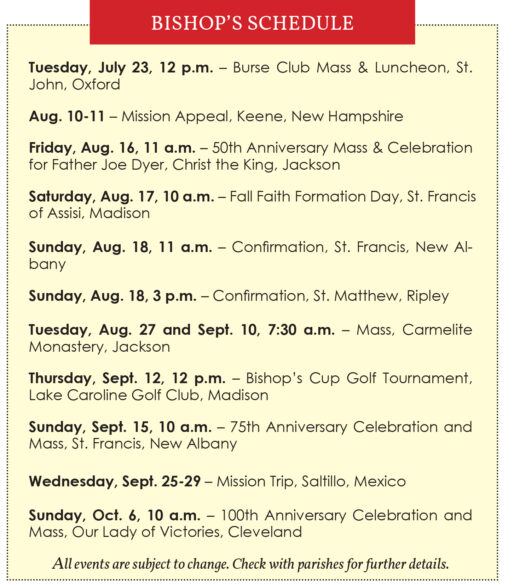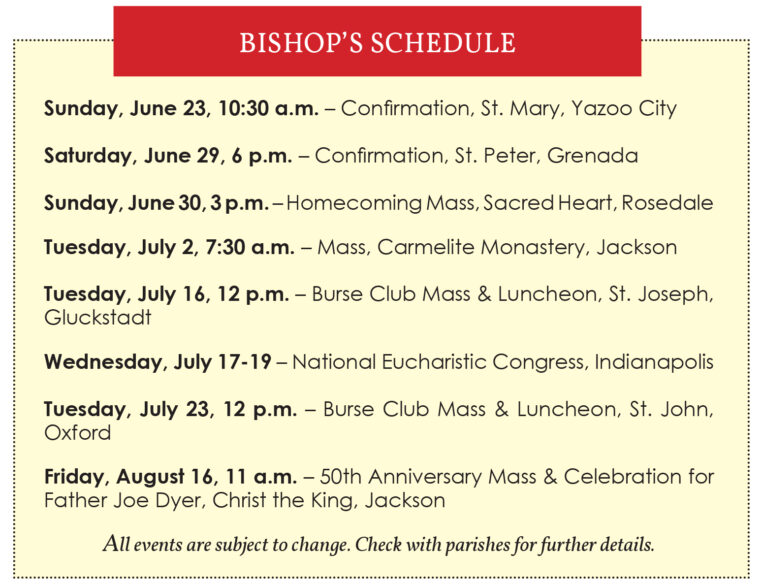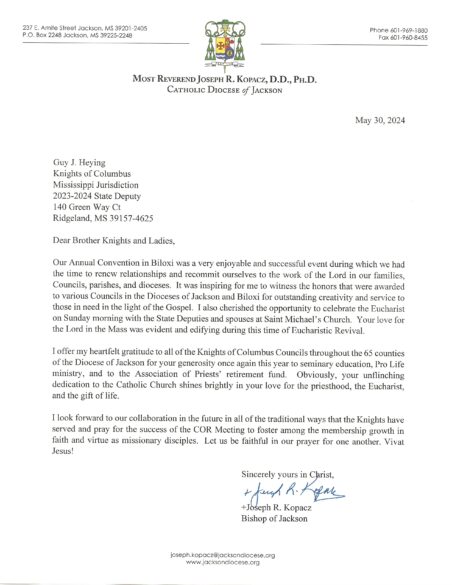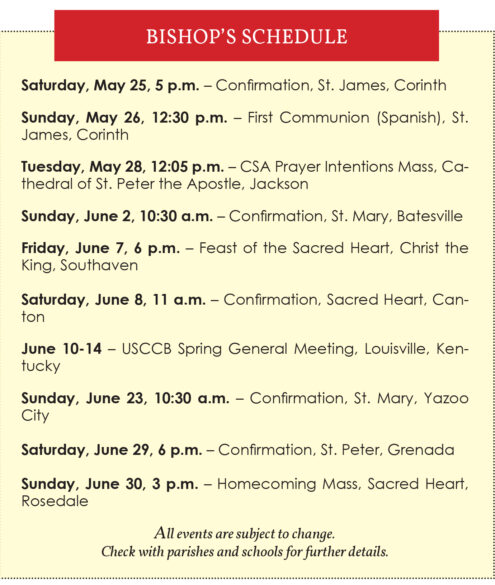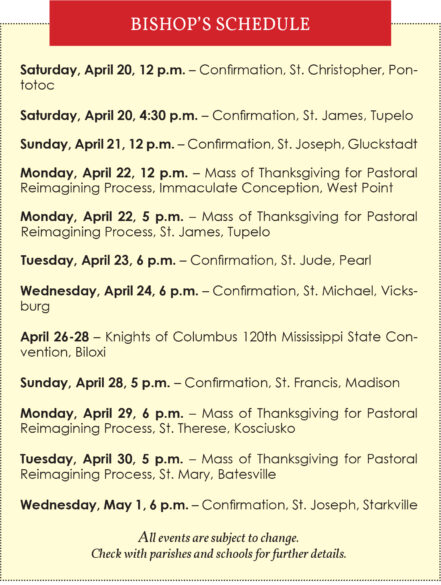Por Obispo Joseph R. Kopacz, D.D.
A medida que entramos en el mes de agosto, las olas de un nuevo año de ministerio en toda la diócesis llegan a las costas de nuestras escuelas, parroquias, y servicios sociales. No todos los programas y servicios comienzan al mismo tiempo, pero a mediados de septiembre todos están en marea alta. Nuestras Escuelas Católicas están funcionando a toda capacidad desde la primera semana de agosto, en sintonía con nuestros cuatro Centros de Aprendizaje Temprano que funcionas durante 12 meses. Caridades Católicas no cierra sus puertas en ningún momento del año, un nuevo año escolar requiere una mayor participación de los programas que sirven a los niños y jóvenes. Del mismo modo, las luces de nuestras iglesias continúan ardiendo intensamente durante 52 semanas, pero con el inicio del otoño, los ministerios parroquiales están en pleno apogeo.

Desde la Cátedra del obispo en el centro de la diócesis, es cautivador echar una mirada larga y amorosa a la red diocesana que tiene tantos niveles e influencias. A principios de este mes tuve el privilegio de hacer una llamada misionera a la diócesis de Keene, New Hampshire. Por supuesto, dondequiera en cualquier momento y lugar que se lleve a cabo una apelación, las Escrituras siempre guían el camino.
El decimonoveno Domingo del Tiempo Ordinario, del 10 y 11 de agosto, el Discurso del Pan de Vida en el capítulo 6 del Evangelio de San Juan estaba llegando a su punto culminante. “Yo soy el pan de vida… Yo soy el pan vivo que bajó del cielo. el que coma de este pan vivirá para siempre; y el pan que yo daré es mi carne para la vida del mundo”. (Juan 6:48-51)
Las palabras del Señor resonaron a lo grande ese fin de semana, no solo en New Hampshire y Mississippi, sino en todas partes del mundo donde se reunió la Iglesia Católica. En otras palabras, en el corazón del discurso de Jesús está la Eucaristía, donde consumimos su cuerpo y su sangre, así como sus palabras. Celebramos nuestra unidad e identidad, porque somos una sola Iglesia santa, católica y apostólica; (Credo de Nicea) hay una sola fe, un solo Señor, un solo bautismo, un solo Dios que es Padre de todos y habita en todos. (Efesios 4:4-5)
Sin embargo, de esta unidad fluye una diversidad asombrosa. La iglesia y el evangelio están implantados en un lugar, tiempo y cultura particulares, tan solo en nuestro país hay diferencias significativas en cada región, de hecho, en cada uno de nuestros estados. En cuanto al llamamiento misionero, es un gozo para mí presumir de la Diócesis de Jackson durante más de 10 años he hablado en parroquias católicas desde Wisconsin hasta Florida, New Hampshire y California.
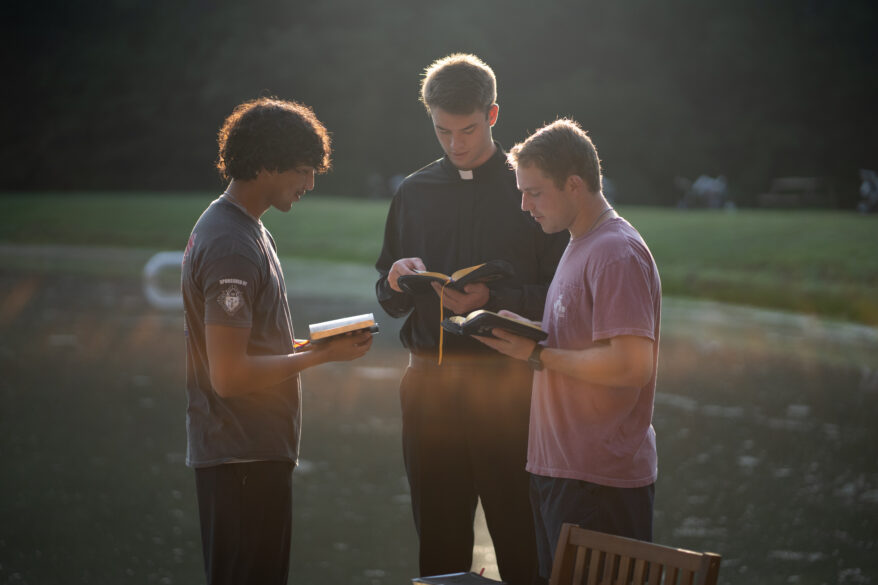
El estudio de CARA realizado durante nuestro proceso de Re-Imaginación Pastoral confirmó que los católicos en la Diócesis de Jackson representan el 2-3% de la población del estado. La demografía, así como la geografía, la historia, el clima, la educación y muchos otros factores se unen para crear las condiciones para la evangelización y una gran cantidad de ministerios. Aquellos que realmente aman al Señor y se preocupan por ver a la iglesia prosperar están ansiosos por aprender de la Diócesis de Jackson, de sus logros y desafíos como Iglesia Católica en Mississippi. Muchos nunca han vivido, viajado o visitado el estado de Magnolia, pero después de una misa hace dos semanas, un caballero me informó que había nacido en la ciudad de Yazoo. Por lo general, nuestras hermanas y hermanos en la fe responden generosamente cuando escuchan cómo sus contribuciones ayudarán a los ministerios parroquiales, escolares y ministerios de servicio.
En esta época del año, especialmente con el desarrollo de tantos ministerios y actividades, es especialmente gratificante compartir nuestra historia de fe durante la Misa, nuestra gran oración de acción de gracias. “En San Pablo, confiemos en que, si dios empezó tan buen trabajo en ustedes, estoy seguro de que lo continuara hasta concluirlo el día de Cristo Jesús”. (Filipenses 1:6)


